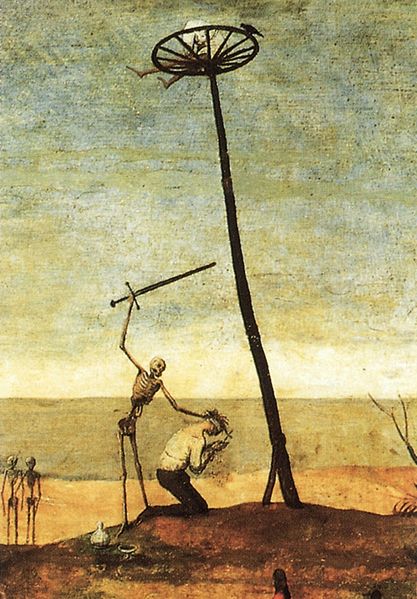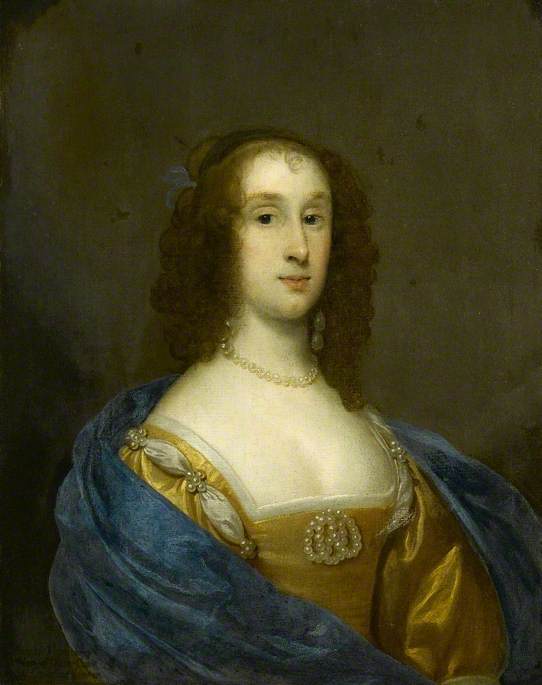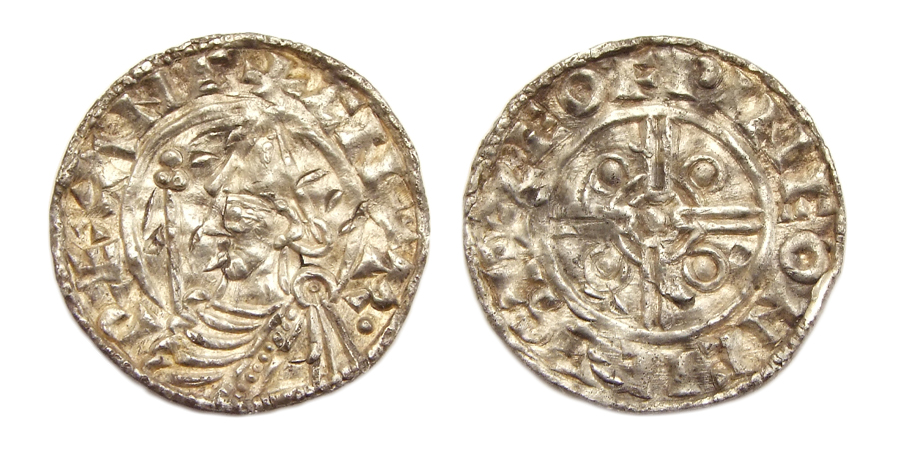|
Edward Dun
Edward Dun (died 11 September 1663), also referred to as Squire Dun, was an English executioner who served as London's 'common hangman' from 1649 to 1663. He assumed the post shortly following the death in June 1649 of Richard Brandon, the headsman believed to have executed Charles I. It is possible that he performed the posthumous executions of Oliver Cromwell, Henry Ireton Henry Ireton (baptised 3 November 1611; died 26 November 1651) was an English general in the Parliamentarian army during the Wars of the Three Kingdoms, and a son-in-law of Oliver Cromwell. He died of disease outside Limerick in November 165 ... and John Bradshaw in 1661, his role in which is described i''The last farewel of three bould traytors''by Abraham Miles. He died on 11 September 1663. He was succeeded as 'common hangman' by the better-known Jack Ketch, who had been his apprentice. Mannix, Daniel P. (1986). ''The History of Torture''. Dorset Press. p. 103. References External links ... [...More Info...] [...Related Items...] OR: [Wikipedia] [Google] [Baidu] |
Executioner
An executioner, also known as a hangman or headsman, is an official who effects a sentence of capital punishment on a condemned person. Scope and job The executioner was usually presented with a warrant authorizing or ordering him to ''execute'' the sentence. The warrant protects the executioner from the charge of murder. Common terms for executioners derived from forms of capital punishment—though they often also performed other physical punishments—include hangman (hanging) and headsman ( beheading). In the military, the role of executioner was performed by a soldier, such as the ''provost''. A common stereotype of an executioner is a hooded medieval or absolutist executioner. Symbolic or real, executioners were rarely hooded, and not robed in all black; hoods were only used if an executioner's identity and anonymity were to be preserved from the public. As Hilary Mantel noted in her 2018 Reith Lectures, "Why would an executioner wear a mask? Everybody knew who ... [...More Info...] [...Related Items...] OR: [Wikipedia] [Google] [Baidu] |
Richard Brandon
Richard Brandon (died 20 June 1649) was the common executioner of London from 1639 to 1649, who inherited that role from his father Gregory Brandon and was sometimes known as Young Gregory. Richard Brandon is often named as the executioner of Charles I, though the executioner's identity is not definitively known. Biography Brandon was born in London, at an unknown date, son to the common executioner of London, Gregory Brandon, and his wife Alice. Gregory Brandon had become executioner in 1611, and was then living with his family on Rosemary Lane, Whitechapel (now known as Royal Mint Street). Though little can be ascertained of Brandon's early years, rumours abounded of his gruesome upbringing as the son of London's executioner. He was rumoured to have decapitated stray cats and dogs, in training for his future position. Brandon's father, Gregory, found himself on the wrong side of the law in January 1611, when he was convicted of the manslaughter of one Simon Morton, though he ... [...More Info...] [...Related Items...] OR: [Wikipedia] [Google] [Baidu] |
Charles I Of England
Charles I (19 November 1600 – 30 January 1649) was King of Kingdom of England, England, Kingdom of Scotland, Scotland, and Kingdom of Ireland, Ireland from 27 March 1625 until Execution of Charles I, his execution in 1649. Charles was born into the House of Stuart as the second son of King James VI of Scotland, but after his father inherited the English throne in 1603, he moved to England, where he spent much of the rest of his life. He became heir apparent to the kingdoms of England, Scotland, and Ireland in 1612 upon the death of his elder brother, Henry Frederick, Prince of Wales. An unsuccessful and unpopular attempt to marry him to Infanta Maria Anna of Spain culminated in an eight-month visit to Habsburg Spain, Spain in 1623 that demonstrated the futility of the marriage negotiation. Two years later, shortly after his accession, he married Henrietta Maria of France. After his accession in 1625, Charles quarrelled with the English Parliament, which sought to curb his ro ... [...More Info...] [...Related Items...] OR: [Wikipedia] [Google] [Baidu] |
London
London is the Capital city, capital and List of urban areas in the United Kingdom, largest city of both England and the United Kingdom, with a population of in . London metropolitan area, Its wider metropolitan area is the largest in Western Europe, with a population of 14.9 million. London stands on the River Thames in southeast England, at the head of a tidal estuary down to the North Sea, and has been a major settlement for nearly 2,000 years. Its ancient core and financial centre, the City of London, was founded by the Roman Empire, Romans as Londinium and has retained its medieval boundaries. The City of Westminster, to the west of the City of London, has been the centuries-long host of Government of the United Kingdom, the national government and Parliament of the United Kingdom, parliament. London grew rapidly 19th-century London, in the 19th century, becoming the world's List of largest cities throughout history, largest city at the time. Since the 19th cen ... [...More Info...] [...Related Items...] OR: [Wikipedia] [Google] [Baidu] |
John Murray (publishing House)
John Murray is a Scottish publisher, known for the authors it has published in its long history including Jane Austen, Arthur Conan Doyle, Lord Byron, Charles Lyell, Johann Wolfgang von Goethe, Herman Melville, Edward Whymper, Thomas Robert Malthus, David Ricardo, and Charles Darwin. Since 2004, it has been owned by conglomerate Lagardère Group, Lagardère under the Hachette Livre, Hachette UK brand. History The business was founded in London, England, in 1768 by John Murray (1737–1793), an Edinburgh-born Royal Marines officer, who built up a list of authors including Isaac D'Israeli and published the ''English Review (18th century), English Review''. John Murray the elder was one of the founding sponsors of the London evening newspaper ''The Star (1788), The Star'' in 1788. He was succeeded by his son John Murray II, who made the publishing house important and influential. He was a friend of many leading writers of the day and launched the ''Quarterly Review'' in 180 ... [...More Info...] [...Related Items...] OR: [Wikipedia] [Google] [Baidu] |
Posthumous Execution
__NOTOC__ Posthumous execution is the ritual or ceremonial mutilation of an already dead body as a punishment. Dissection as a punishment in England Some Christians believed that the resurrection of the dead on Judgment Day requires that the body be buried whole facing east so that the body could rise facing God. If dismemberment stopped the possibility of the resurrection of an intact body, then a posthumous execution was an effective way of punishing a criminal. Examples * When the Persian king Cambyses II, Cambyses First Achaemenid conquest of Egypt, conquered Egypt in 525 BC and ended the 26th (Saite) Dynasty, Herodotus recorded the desecration of the mummy of Amasis II (who died the year before) by Cambyses: * In 897, Pope Stephen VI had the corpse of Pope Formosus disinterred and put on trial during the Cadaver Synod. Found guilty, the corpse had three of its fingers cut off and was later thrown into the Tiber. * Harold Harefoot, Harold I Harefoot, king of the Anglo-Saxo ... [...More Info...] [...Related Items...] OR: [Wikipedia] [Google] [Baidu] |
Oliver Cromwell
Oliver Cromwell (25 April 15993 September 1658) was an English statesman, politician and soldier, widely regarded as one of the most important figures in British history. He came to prominence during the Wars of the Three Kingdoms, initially as a senior commander in the Parliamentarian army and latterly as a politician. A leading advocate of the execution of Charles I in January 1649, which led to the establishment of the Commonwealth of England, Cromwell ruled as Lord Protector from December 1653 until his death. Although elected Member of Parliament (MP) for Huntingdon in 1628, much of Cromwell's life prior to 1640 was marked by financial and personal failure. He briefly contemplated emigration to New England, but became a religious Independent in the 1630s and thereafter believed his successes were the result of divine providence. In 1640 he was returned as MP for Cambridge in the Short and Long Parliaments. He joined the Parliamentarian army when the First Engl ... [...More Info...] [...Related Items...] OR: [Wikipedia] [Google] [Baidu] |
Henry Ireton
Henry Ireton (baptised 3 November 1611; died 26 November 1651) was an English general in the Parliamentarian army during the Wars of the Three Kingdoms, and a son-in-law of Oliver Cromwell. He died of disease outside Limerick in November 1651. Personal details Ireton was the eldest son of German Ireton of Attenborough, Nottinghamshire, and was baptised in St Mary's Church on 3 November 1611. He became a gentleman commoner of Trinity College, Oxford, in 1626, graduated with a Bachelor of Arts in 1629, and entered the Middle Temple the same year. English Civil War On the outbreak of the First English Civil War he joined the parliamentary army, fighting at the Battle of Edgehill in October 1642 and the Battle of Gainsborough in July 1643. He was made deputy-governor of the Isle of Ely by Oliver Cromwell, and served under the Earl of Manchester in the Yorkshire campaign and at the second Battle of Newbury, afterward supporting Cromwell in his accusations of incompetenc ... [...More Info...] [...Related Items...] OR: [Wikipedia] [Google] [Baidu] |
John Bradshaw (judge)
John Bradshaw (12 July 1602 – 31 October 1659) was an English jurist. He is most notable for his role as President of the High Court of Justice for the trial of Charles I and as the first Lord President of the Council of State of the English Commonwealth. Early life John Bradshaw, the second son of Henry Bradshaw and Catherine Winnington, was born in 1602 probably at Wybersley (Wyberslegh) Hall in the village of High Lane near Stockport, Cheshire, or possibly at the nearby Peace Farm, Marple (his father farmed at both) and baptised on 10 December in Stockport Church. As a child he attended the free school at Stockport, as well as schools in Bunbury and Middleton."Bradshaw, John". ''The Oxford Dictionary of National Biography''. VIII, 1921. During his teenage years he also attended The King's School, Macclesfield. According to local tradition he wrote the following inscription on a gravestone at either Macclesfield or Bunbury: :"My brother Henry must heir the land, : ... [...More Info...] [...Related Items...] OR: [Wikipedia] [Google] [Baidu] |
Summersdale Publishers
Summersdale Publishers Ltd (often simply Summersdale) is an English independent publishing firm of non-fiction. The company is based in Chichester, West Sussex. Founded in 1990 by Stewart Ferris and Alastair Williams, it has since published over 800 titles, and has an output of around 90 books per year. Publishing philosophy ''To seek out potential trade bestsellers in the following genres: travel literature, humour, self help, and general non fiction.''http://www.summersdale.com/pages.php?page=About%20Us&osCsid=ikot60d460ped0ro7rdbchs984 Summersdale's 'about us' web page Authors * David Baboulene *Bidisha *Edward Enfield * Caro Feely * Stewart Ferris * Peter Kerr *Imogen Lloyd Webber *Anna Nicholas * Geoff Thompson * Reza Pakravan Other media activities *Audiobooks *E-books An ebook (short for electronic book), also spelled as e-book or eBook, is a book publication made available in electronic form, consisting of text, images, or both, readable on the flat-panel disp ... [...More Info...] [...Related Items...] OR: [Wikipedia] [Google] [Baidu] |
Chichester
Chichester ( ) is a City status in the United Kingdom, cathedral city and civil parish in the Chichester District, Chichester district of West Sussex, England.OS Explorer map 120: Chichester, South Harting and Selsey Scale: 1:25 000. Publisher:Ordnance Survey – Southampton B2 edition. Publishing Date:2009. It is the only city in West Sussex and is its county town. It was a Ancient Rome, Roman and Anglo-Saxon settlement and a major market town from those times through Norman dynasty, Norman and medieval times to the present day. It is the seat of the Church of England Diocese of Chichester and is home to a 12th-century cathedral. The city has two main watercourses: the Chichester Canal and the River Lavant, West Sussex, River Lavant. The Lavant, a Winterbourne (stream), winterbourne, runs to the south of the city walls; it is hidden mostly in culverts when close to the city centre. History Roman period There is no recorded evidence that Chichester was a settlement of any ... [...More Info...] [...Related Items...] OR: [Wikipedia] [Google] [Baidu] |
Jack Ketch
John Ketch (died November 1686) was an infamous English executioner employed by King Charles II. He became famous through the way he performed his duties during the tumults of the 1680s, when he was often mentioned in broadsheet accounts that circulated throughout the Kingdom of England. He is thought to have been appointed in 1663. He executed the death sentences against William Russell, Lord Russell, in Lincoln's Inn Fields on 21 July 1683, and James Scott, 1st Duke of Monmouth, on 15 July 1685, after the Monmouth Rebellion. Ketch's notoriety stems from "barbarity at the execution of Lord Russell, the Duke of Monmouth, and other political offenders". Because of his botched executions, the name "Jack Ketch" is used as a proverbial name for death, Satan and executioners. Appointment Ketch took office in 1663, succeeding the late Edward Dun, to whom he had been apprenticed. He is first mentioned in the Proceedings of the Old Bailey for 14 January 1676, although no printed ... [...More Info...] [...Related Items...] OR: [Wikipedia] [Google] [Baidu] |






